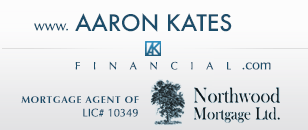Types of Discounted Properties Toronto
Auctions
There are many types of discounted properties that can be offered for sale through a variety of means. Properties may be offered for auction, usually with a reserve price. Bids can be made incrementally. A deposit of 10% to 20% of the estimated highest bid is usually required upon registration at the auction.
Assessments
If a condominium corporation becomes indebted to a bank that holds the mortgage on the building, then a set assessment fee may be registered on the corporation. As well if the reserve fund becomes a non-sufficient amount or if the account is overdrawn in order to pay for renovations or emergency maintenance to the building or facilities. An additional fee on top of the maintenance fee may need to be paid by individual owners of condominiums in the building. This amount will need to be paid until the debt is cleared.
Bank Repossessions
A bank may repossess a property on which a mortgage is held and sell the property via a variety of means, including auction, foreclosure (not common in Canada) and power of sale.
Crown Land Sales
If the government owns land that it does not consider valuable or believes to be excess property, then it can sell parcel via various means, including; auction or listing it with a special realty company, among other options. These properties are usually located areas and were formally part of a national park or proposed and cancelled land development project.
Municipal Surplus Sales
Similar to Crown Land Lands, Municipal Surplus Sales involve a municipality selling excess land that the municipality does not want to maintain. This property can be sold via auction or tender package where bids are submitted in writing in a closed envelope prior to the date of sale.
Provincial Land Sales
These lands are usually located near highways or part of cancelled land development projects. The land is sold because the Province does not want to maintain the land. This property can be sold via auction or tender package where bids are submitted in writing in a closed envelope prior to the date of sale.
Foreclosures
If an owner of a house, condominium or land defaults on mortgage payments for many months, then the bank can take possession of the property and sell it directly. To assume ownership of the property the bank would need to obtain a judgment from a court in the region where the property is situated to transfer the deed / ownership of said lands to the bank.
Power of Sale
A Power of Sale process involves a bank ordering a property to sell their property by a set date, due to non-payment or irregular mortgage payments. The owner will be able to claim and keep some of their equity in the property whereas they would not have this option with a foreclosure. The owner can benefit from the difference between the sale price and the money owed to bank.
Tax Sales
If a property owner does not pay the required property taxes for two years or more, then the region, or city can sell it to cover the cost of the taxes owed, plus interest and penalties (legal / processing fees).This property can be sold via auction or tender package where bids are submitted in writing in a closed envelope prior to the date of sale.
Visit: HomeIsReal.com for more details.


